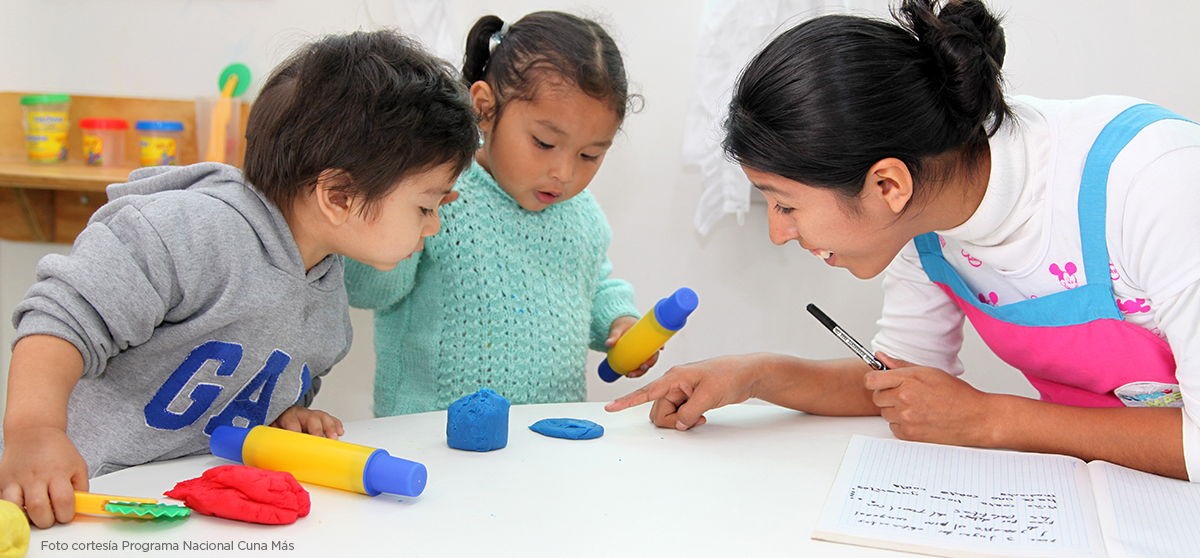By Marycarmen Rubalcava Oliveros
Inclusion and Sustainable Development Researcher at Ethos
Center for Innovation in Public Policy
Earlier this year, President Claudia Sheinbaum announced the creation of the Child Care and Education Centers (CECI), starting its construction in Ciudad Juárez, Chihuahua, with the help of the IMSS and the DIF. He mentioned that this action is a step towards settling a historical debt of social justice to women maquila workersAnd, in part, it is. However, for CECIs to have a real impact on the lives of working women, they must be part of a broader strategy that includes decent work, access to social security, and policies that prevent exploitation and discrimination in employment.
Guaranteeing the right to care and the infrastructure necessary to make it a reality is a way to recognize and alleviate the burden that Mexican mothers and women have carried for years, often at the expense of their economic autonomy, their well-being, and their time. Because, Although caring can be born from love, it also involves effort and cost.CECIs are a key advance in the social organization of care, but we must broaden the discussion beyond care and begin to question the model in which they are embedded.
CECIs operate under the same premise as many childcare centers: to guarantee a safe environment where children can develop and where their physical and emotional well-being is ensured.
Thus, families would ideally delegate their care tasks temporarily, with the assurance that their daughters and sons will receive decent and respectful care and education. It is assumed that, with these policies, women can redistribute their time and strengthen their economic autonomy. And to a certain extent, this is true.
Daycare centers should not only provide care for children, but should also bring about changes in the lives (especially in the workplace) of primary caregivers and even encourage women to enter the workforce. But how far can this promise go in precarious sectors, such as the manufacturing industry?
In 2023, INEGI's Annual Survey of the Manufacturing Industry revealed that 36.2% of the workforce employed in the industry are women, with a majority participation in the garment manufacturing and textile production sectors.
According to the "Inspecting Inspection in Mexico: The Case of the Apparel Industry in Mexico" report, this sector is marked by precariousness: 951% of establishments are micro-businesses, and 81% operate informally. In these micro-businesses, women represent 66% of the workforce, and 77% of them work in informal conditions, without access to basic labor rights. This poses a primary challenge in terms of CECI coverage, as more than half of the women who could benefit do not even have social security.
Other challenges stem from the lack of co-responsibility for and with workers in childcare policies. Many women in the maquila industry face long hours without fair wages, unsafe working conditions, exposure to toxic materials, and constant violence and discrimination. In this context, Guaranteeing care spaces for the daughters and sons of working women is a step forward, but it is not enough to speak of social justice..
Delegating childcare to another agent without changing working conditions does not eliminate the obstacles workers face; on the contrary, it strengthens their role as mothers and recognizes them as workers, since they have the right to childcare.
The CECIs have not succeeded in putting working women at the center, but rather their sons and daughters, and their working time. But The historical debt is due to an unfair labor system, one that remains intact, because, even if the CECIs become a reality, they remain part of a model of inequality that does not improve the working conditions or the economic autonomy of women who work in the maquila.Rather than freeing up their time, these centers may reinforce the idea that women's primary need is access to childcare, overshadowing the urgent need to improve their labor rights.
As currently established, daycare centers do not advance true gender equality. If we are committed to creating care policies, we should consider them in terms of their general definition of actions that sustain life, but in a context of labor injustice, what life can be sustained?
________________
* The original text was published in Animal Político on February 26, 2025. Retrieved from: https://blogs.iadb.org/igualdad/es/por-que-es-fundamental-una-agenda-de-cuidados-en-mexico/






